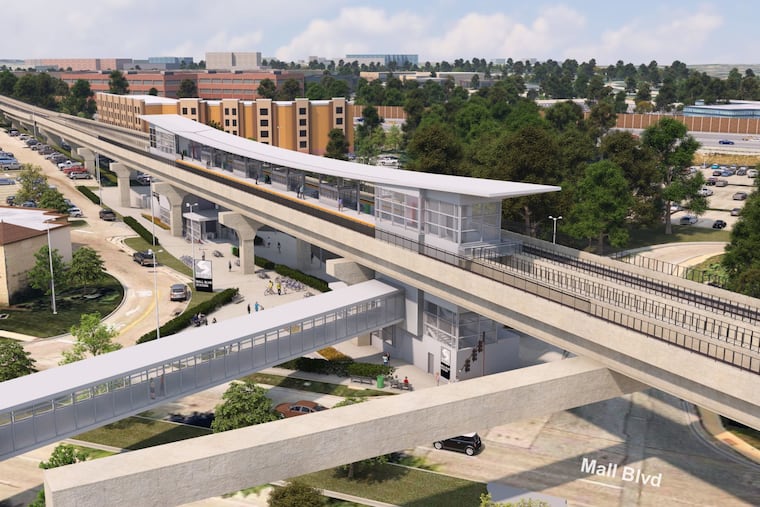SEPTA board OKs spending federal COVID-19 aid on the King of Prussia rail line
There will be no diminution in service because of the reallocation, SEPTA says. Federal pandemic aid for transit agencies is mostly earmarked for operating expenses.

SEPTA will spend $40 million in emergency federal funds designed to help transit agencies keep buses and trains running during the pandemic to do design and engineering work for the proposed King of Prussia rail project.
Philadelphia transit advocates spoke against the move Thursday before the SEPTA board unanimously approved the reallocation during its monthly virtual public meeting. Agency officials said that it would not diminish service and that it was important to make progress on a project it believes vital to the region’s economy.
» READ MORE: SEPTA intends to spend $40M in federal COVID-19 relief on proposed King of Prussia line
CARES Act money was intended to “ensure essential workers were able to safely commute during this crisis, not so SEPTA can extend engineering and design-work contracts,” said Daniel Trubman, a transit rider and member of the 5th Square advocacy group. He said the money should be used to increase the frequency of service to alleviate crowding on some bus and trolley routes, to provide free masks, and for continued operations.
SEPTA has been able to maintain city transit service at 85% to 90% of pre-pandemic levels on buses and subways even though ridership has fallen to 35% of what it was, said Jody Holton, the agency’s assistant general manager for planning. It has tweaked its schedule to run more buses when there is overcrowding, she said.
The King of Prussia rail extension would reduce carbon emissions, connect the three largest “employment centers” in the region, and promote equity, Holton said.
“Many of our riders face long delays on bus routes to jobs in King of Prussia,” she said.
The project has an estimated cost of $2 billion and would require substantial additional federal funding.
Normally, SEPTA leases track owned by Amtrak, the national passenger railroad, to operate some of its rail lines, with the money coming from the capital budget. In the CARES aid legislation, the federal government paid Amtrak $21.7 million directly toward SEPTA’s yearly lease bill.
Moving federal funds to pay the $40 million it owes on those leases frees up money in the capital budget to finance the next phase of design and engineering for the King of Prussia project. That work will take two years, and its completion is a requirement for the proposal to extend the Norristown High Speed Line to be eligible for competitive federal grants.
» READ MORE: SEPTA doubles down on commitment to $2B King of Prussia Rail project
SEPTA uses Amtrak-owned track to operate its Trenton, Wilmington/Newark, and Paoli/Thorndale Regional Rail service, as well as portions of the Chestnut Hill West, Airport, and Cynwyd rail lines. The federal legislation authorized transit agencies to use aid money for track leases.
The King of Prussia line would link one of the fastest-growing areas in the state to University City and Center City via the Norristown Transportation Center and the 69th Street Transportation Center in Upper Darby.